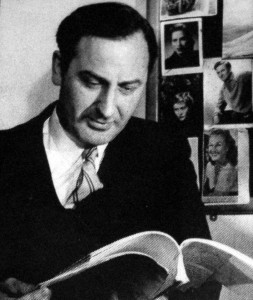by OLIVER WAKE
The study of television drama is complicated by the regular regurgitation of inaccurate accounts and misinformation about old programmes. How and why this occurs is easily understandable: anecdotal information from interviews with programme-makers is subject to the inevitable distortions of memory over time, or of exaggeration or invention for the sake of telling a good story (many of these people are performers or entertainers after all). Other sources, such as the national press, are also known to be unreliable. The culture outside academia – and most particularly on the internet – amongst those with an interest in television drama is usually for information and anecdote to be accepted at face value. It is therefore repeated as fact and, whether accurate or not, may be subject to distortion via the ‘Chinese whispers’ process of reiteration. Primary sources of information are often either non-existent or inaccessible, leaving these long repeated accounts unverifiable or at least unchecked. However, original research and the use of reliable primary and secondary sources where available can, in some cases, challenge the flow of generally accepted but inaccurate information (what I shall call ‘myths’ here).

